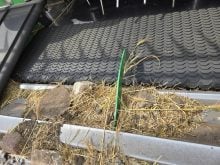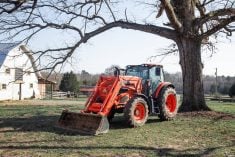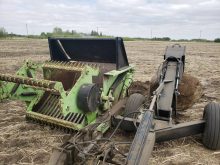Seeding efforts continue to be stymied by inadequate supply and delayed delivery of anhydrous ammonia, one of the major forms of nitrogen fertilizer used by western Canadian farmers.“It is a common problem,” said Agricultural Producers Association of Saskatchewan president Greg Marshall.Delays have put some growers hundreds of acres behind schedule.The Canadian Fertilizer Institute claims the problem stems from restrictive federal regulations governing trucking hours of service.They submitted an application in December requesting an exemption from some of the rules for fertilizer delivery during spring seeding months.Transport Canada is reviewing the draft application and working with the institute to compile the required information and data needed to render a decision.Frustrated farmers believe the problem runs deeper than trucking rules. Marshall suspects there is a supply shortage caused by a backlog in demand from farmers who were unable to apply fertilizer last fall due to a late harvest.Cale Hubka, a forage and grain farmer from Lethbridge who runs a commercial trucking business on the side, has offered his trucking service to Agrium for two years but the fertilizer manufacturer has rebuffed his offers.“I don’t believe the issue about hours of service is to blame. We just need more trucks,” wrote Hubka in an e-mail to The Western Producer.Richard Downey, spokesperson for Agrium, said the company has met all of its customer commitments this year. But he acknowledged that ammonia is definitely in short supply in 2010.“It has been a tight season this year and there has been shortages across North America,” he said.The supply crunch was particularly pronounced in the United States.“It was much worse than here.”Downey said stronger than usual demand for ammonia coupled with a narrow spring seeding window, trucking restrictions and limited storage for the product has made it difficult for fertilizer retailers to meet customer needs.Richard Phillips, executive director of Grain Growers of Canada, one of the groups that supported the Canadian Fertilizer Institute’s application, has learned that Transport Canada is sending its trucking safety people out west this week to investigate the request for an exemption.Officials will be touring a Viterra site to get a better idea of how the delivery system works.Phillips said the application process has taken too long and acknowledged that it is probably too late to do anything about this spring’s dilemma.The U.S. Fertilizer Institute received an exemption on similar trucking rules on March 19.Phillips is encouraged that Transport Canada considers the issue serious enough to send a team.“What it will do is it will set the precedent that this won’t happen again,” said Phillips.
Read Also

Trump’s tariffs take their toll on U.S. producers
U.S. farmers say Trump’s tariffs have been devastating for growers in that country.















